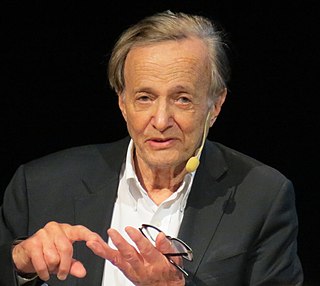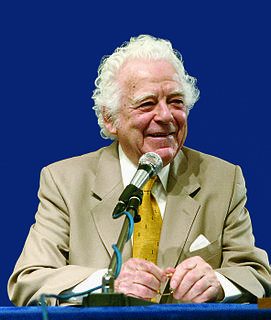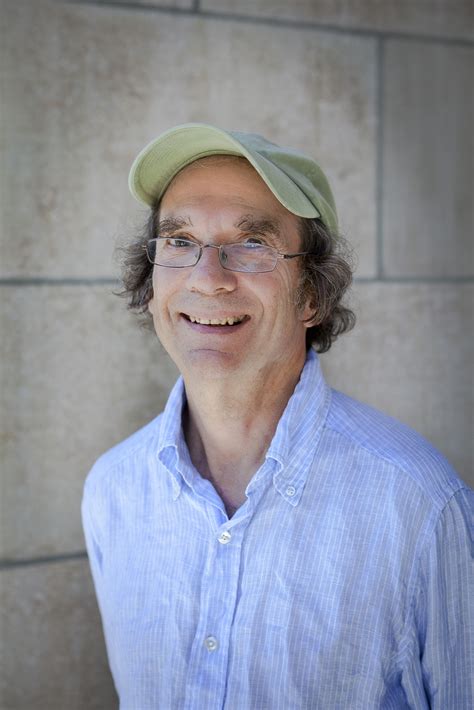A Quote by Pope John Paul II
The drama of AIDS threatens not just some nations or societies, but the whole of humanity. It knows no frontiers of geography, race, age or social condition(calling) for a supreme effort of international cooperation on the part of government, the world medical and scientific community and all those who exercise influence in developing a sense of more responsibility in society.
Quote Topics
Age
AIDS
Calling
Community
Condition
Cooperation
Developing
Drama
Effort
Exercise
Frontiers
Geography
Government
Humanity
Influence
International
International Cooperation
Just
Knows
Medical
More
Nations
Part
Race
Responsibility
Scientific
Sense
Social
Societies
Society
Some
Supreme
Those
Whole
World
Related Quotes
The race is now on between the technoscientific and scientific forces that are destroying the living environment and those that can be harnessed to save it. . . . If the race is won, humanity can emerge in far better condition than when it entered, and with most of the diversity of life still intact.
The provision of health care facilities must be accepted as a social responsibility. It is not that an individual who has the misfortune to be inflicted with some particular disease is solely responsible for searching the facilities to cure his illness. This is a social responsibility which is accepted by governments all over the world. This is part and parcel of the organization of individuals into societies. It is a measure of the degree of civilization.
Humanity must accept that the food, the raw materials, the energy, the scientific knowledge and so on, belongs to everybody, that it is given by Divine providence for all peoples, the rich nations and what are called the developing nations. No one has the right to corner the goods of the world as is done today, whether that be oil or food or any of the things that we think are so important.
Sometimes we feel that one individual's action is very insignificant. Then we think, of course, that effects should come from channeling or from a unifying movement. But the movement of the society, community or group of people means joining individuals. Society means a collection of individuals, so that initiative must come from individuals. Unless each individual develops a sense of responsibility, the whole community cannot move. So therefore, it is very essential that we should not feel that individual effort is meaningless- you should not feel that way. We should make an effort.
I think that we had a different view of what the 21st century could be like, with much more of a sense, from our perspective, of trying to have an interdependent world: looking at solving regional conflicts, having strength in alliances, operating within some kind of a sense that we were part of the international community and not outside of it.
I feel very strongly that history is about everything. It isn't just about politics or the military or social issues. If art, music, engineering, science, medicine, finance, the world of architecture and technology - if those are left out, then you're not getting a full sense of the human condition. History is human and we human beings are involved in all kinds of things and that's part of our humanity.
The best way to deal with AIDS is through education. So we need a really widespread AIDS education program. In fact, what we need in Burma is education of all kinds - political, economic, and medical. AIDS education would be just part of a whole program for education, which is so badly needed in our country.
Our age gives the more receptive among the young such a sense of social responsibility that one is inclined at times to fear that social interests may encroach upon individual development, that a knowledge of all the ills affecting the community may act as too powerful a damper on the joys of youth.
Science fiction - and the correct shortcut is 'sf' - uses actual scientific facts or theories for the source ideas or framework of the story. It has some scientific content, however speculative. If it breaks a law of physics, it knows it's doing so and follows up the consequences. If it invents a society of aliens, it does so with some respect for and knowledge of the social sciences and what you might call social probabilities. And some of it is literarily self-aware enough to treat its metaphors as metaphors.
If some individuals contribute to general social deterioration by overproducing children, and if the need is compelling, they can be required by law to exercise reproductive responsibility — just as they can be required to exercise responsibility in their resource-consumption patterns — providing they are not denied equal protection










































